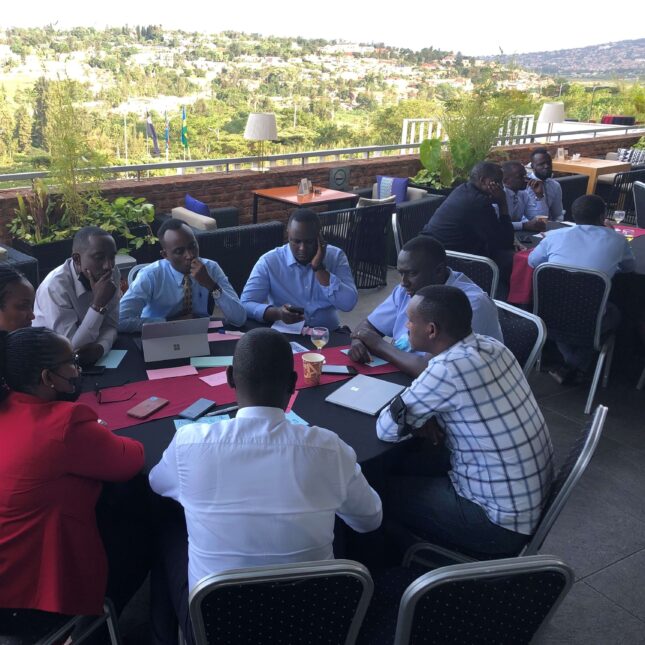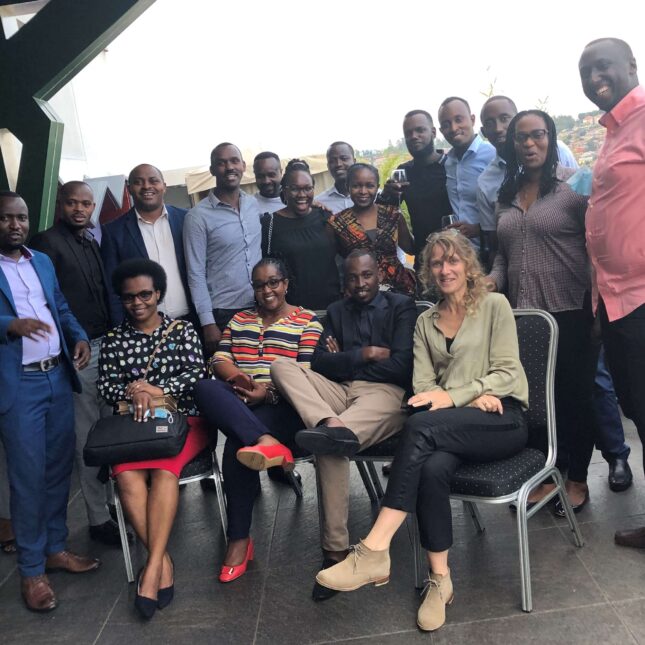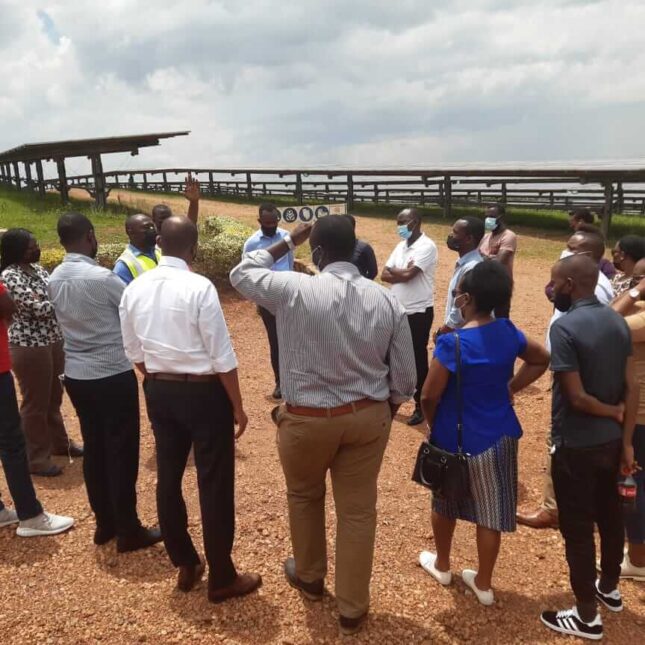GET.invest expands Capacity Development for Domestic Financiers
25 January 2022 | With initiatives such as tailor-made coaching and trainings, GET.invest puts an increased focus on supporting domestic financiers in sub-Sahara Africa to improve access to local currency finance for clean energy companies and project developers. Two pilot activities have been implemented so far, more work is underway.
Despite increasing activity in the decentralised renewable energy (RE) sector in sub-Saharan Africa, domestic clean energy businesses and project developers continue to face significant challenges in accessing finance in general and particularly in local currency, which can create a high risk of foreign currency exposure. In this context, the domestic financial sector plays a catalytic role, as it can mobilise additional local currency funds for investment and working capital. So far, however, domestic financiers still play a rather marginal role, which is not least due to limited experience.
To support the development of the financial sector in partner countries, and particularly in Sub-Sahara Africa, GET.invest has started to intensify collaboration with domestic finance institutions to increase capacities.
Coaching pilot with selected domestic banks
Among the different initiatives are two pilot activities with selected domestic banks in Rwanda and Mozambique that went into implementation in 2021. Concretely, the pilots consisted of tailor-made coaching and trainings with the Bank of Africa and Cogebanque from Rwanda, and the Banco Nacional de Investimento (BNI), Banco Comercial de Investimentos (BCI), Banco Internacional de Moçambique (BIM) and Moza Banco from Mozambique. The sessions covered topics that were predefined individually with the banks; among them fundamentals such as different renewable technologies, applications and business models, calculating investment profitability and conducting risk assessments, as well as selected renewable energy market segments which were Commercial and Industrial Use (C&I), mini grids and small Independent Power Producers (IPP).
As a practice-oriented addition to the coaching sessions, the participants got the chance to visit a solar power project site to learn more about the different components of a renewable energy project – beyond the finance aspects.
Preliminary outcomes
In an evaluation in November 2021, the participating banks expressed high satisfaction with the achieved learnings and outcomes.
For instance, several practical tools to assess renewable energy projects were developed, tested and trained with bank staff; the tools can now be applied by the financing institutions. Furthermore, the banks have learned to screen their portfolios for potentially interested clients and, if necessary, assist them in preparing for finance access by linking them to the GET.invest Finance Catalyst. Some of the banks are now also planning to develop new financial products and to conduct strategic reviews to determine how to approach the area of renewable energy financing henceforth.
Besides these achievements, the coaching revealed that business opportunities for banks in the area of renewable energy go beyond large-scale project finance but may include approaches in a broad range of sectors like the hotel industry or IT – similar to conventional lending. This insight can help to promote renewables even more. Besides the business opportunities, banks are motivated to improve their RE finance offer for reasons of Corporate Social Responsibility (CSR), environmental sustainability and Nationally Determined Contributions (NDCs) to climate change mitigation and adaptation.
The way ahead
Taking a brief outlook beyond the pilot phase, in Mozambique, banks can now continue to request further coaching, particularly for strategic topics, and in Rwanda, further training sessions will be held in the beginning of 2022 to deepen the previous discussions. Eventually, insights and learnings from the pilot activities will be used to develop a conceptual framework for further capacity building with domestic financiers in other sub-Saharan African countries.
Capacity building for a green recovery
Besides these two pilot activities targeting domestic banks, GET.invest kicked-off a partnership with the Renewables Academy AG (RENAC) – one of the leading international providers for training and capacity building on renewable energy and energy efficiency – in December 2021, which will continue throughout the first half of 2022.
This activity targets different actors from the domestic financial sector in Burundi and Nigeria – among them commercial banks, development banks, microfinance institutions, funds, institutional investors and financial service providers – and equips them with the know-how needed to contribute to a lasting improvement of financing options for renewable energy and energy efficiency. Thereby, they specifically aim at supporting a sustainable Covid-19 response via the expansion of clean technologies and laying the ground for a swift and green recovery in the region. Components include a 12-week online training as well as a Train-the-Trainer seminar that will eventually support the establishment of a long-term, certified training programme.
Complementing a versatile portfolio
In the future, the area of capacity development for domestic financiers can become a useful complementary service to the existing private sector-oriented portfolio of GET.invest, including the GET.invest Finance Catalyst, which has a track record of over 200 supported companies and projects, and the new GET.invest Finance Readiness Support, which targets local, earlier stage micro-, small- and medium (MSME) companies. On the one hand, domestic financiers can increase the quality of their portfolios by referring potential and actual clients to the existing GET.invest advisory services, as has already happened during the pilot in Mozambique. On the other hand, strengthened capacities will enable the domestic finance institutions to access dedicated finance products – like for example funding or guarantees from International Development Institutions – themselves. This will lead to an increased offer of attractive, new financial products that extend the financing opportunities available to renewable energy projects and companies in the sector.





